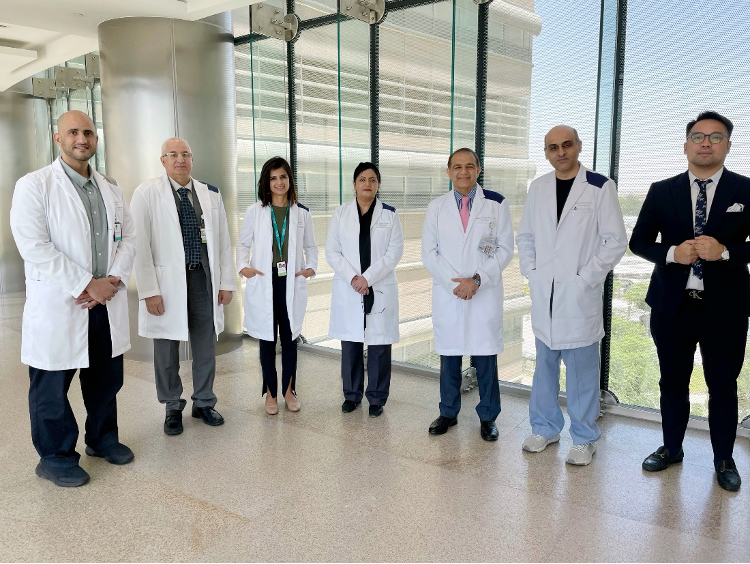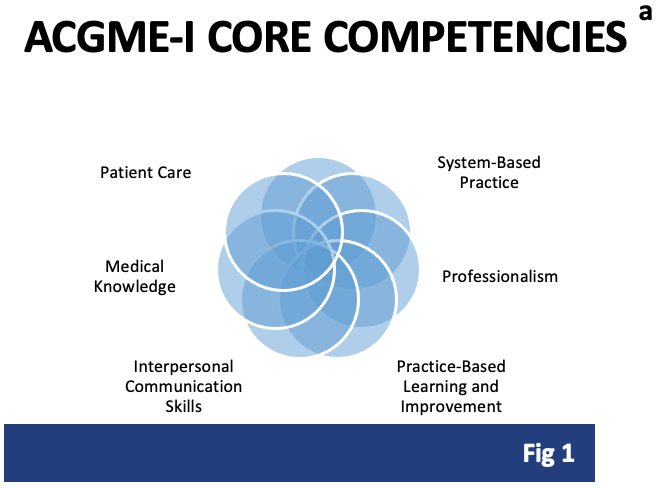The World’s First ACGMEI accredited Child and Adolescent Psychiatry Fellowship
By Finza Latif, MD, DFAACAP, Sidra Medicine Qatar; Durre Shahwar, MBBS, MRCPsych, Sidra Medicine Qatar; Muhammad W. Azeem, MD, DFAACAP, DFAPA, Sidra Medicine Qatar
Sidra Medicine is an academic women and children’s hospital in the state of Qatar, affiliated with Weill Cornell Medical School-Qatar. The Psychiatry Department serves women and children with mental health difficulties in Emergency, Inpatient and Outpatient settings. The Department has a multi-cultural faculty of psychiatrists and psychologists with multiple areas of expertise. Patient volumes have grown through the years due to community and school advocacy. The Department cared for >10,000 patients in 2020. The hospital and the Department values education and aims to provide the highest standards of training to future child and adolescent psychiatrists, psychologists, pediatric specialty trainees and medical students.

From left to right: Dr. Mohamed Albreiki (child psychiatry fellow), Dr. Muhammad Ather (Outpatient Child Psychiatry Lead), Dr. Finza Latif (Program Training Director), Dr. Durre Shahwar (Associate Program Training Director), Professor Muhammad Waqar Azeem (Chair, Department of Psychiatry), Dr. Ahsan Nazeer (Division Chief, Child and Adolescent Psychiatry), Marcel Ramos (Program Training Coordinator)
The Department started the journey of developing a child and adolescent psychiatry fellowship training program in 2018. In order to ensure that the training program met the highest quality standards, it was modeled to meet the requirements of the Accreditation Council for Graduate Medical Education-International (ACGME-I). The ACGME is the main accreditor of graduate medical education programs in the United States while the ACGME-I extends this accreditation model internationally. The Advanced Specialty Training Program in Child and Adolescent Psychiatry at Sidra received accreditation by ACGMEI in 2019 for 3 positions per year for a 2 year training period.
The main strength of an ACGME-I program is a shift from the ‘apprenticeship’ or time based teaching model to a competency based model, ensuring specific standards for teaching, learning and professional practice. Fellows are required to meet 6 core competencies (Fig1) in order to graduate.

Program Development:
The educational program includes a core didactic curriculum and core clinical rotations. Clinical rotations are organized for each year using a block schedule (Fig 2). Fellows also receive protected time to complete scholarly activities including conference presentations, posters and original research.

A wide range of elective clinical rotations are offered in the second year of training in order to enhance knowledge and expertise in overlapping pediatric specialties for example, pediatric neurology, developmental pediatrics and Adolescent medicine. School based rotations in regular and special education schools in the region are offered to enhance assessment and management skills in school settings. Quality of each rotation is ensured by having clear goals and measurable objectives. The fellow’s progress is measured using 360 milestone evaluations that cover the six core competencies.
Multidisciplinary feedback is valued, which includes feedback from supervisors, nursing, and patients. Teaching faculty also receive training in conducting milestone evaluations in order to ensure consistency.
Our mission, in alignment with the ACGME_I is improving access to care and the overall health outcomes of patients and families in the region by training quality child and adolescent psychiatrists.

